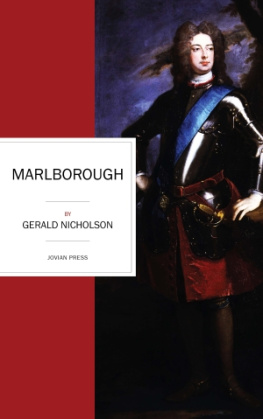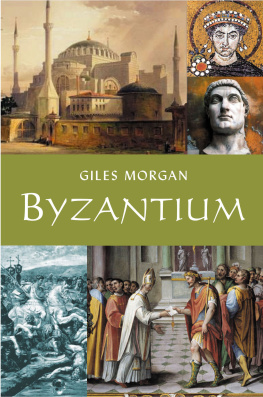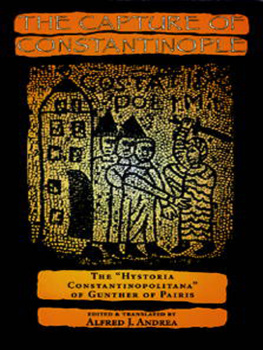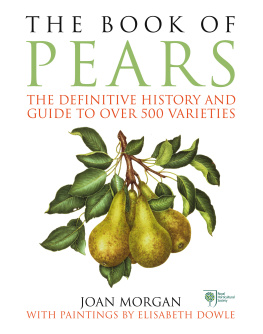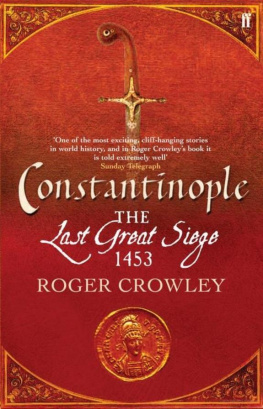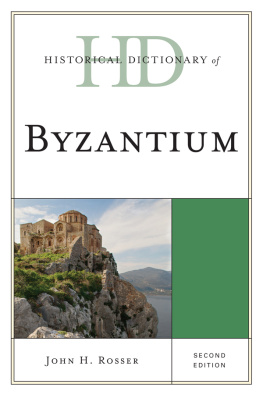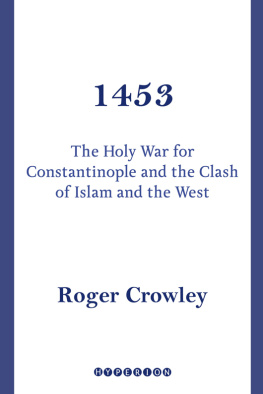THE DESTRUCTION
OF
THE GREEK EMPIRE
The Destruction of the Greek
Empire and the Story of the
Capture of Constantinople by
the Turks
BY
EDWIN PEARS, LL.B.
Knight of the Greek Order of the Saviour and Commander of
the Bulgarian Order of Merit
Author of The Fall of Constantinople: being the
Story of the Fourth Crusade
WITH MAPS AND ILLUSTRATIONS
LONGMANS, GREEN, AND CO.
39 PATERNOSTER ROW, LONDON
NEW YORK AND BOMBAY
1903
All rights reserved
PREFACE
My object in writing this book is to give an account of the capture of Constantinople and the destruction of the Greek empire. In order to make the story intelligible and to explain its significance I have given a summary of the history of the empire between the Latin conquest in 1204 and the capture of the city in 1453, and have traced the progress during the same period of the race which succeeded in destroying the empire and in replacing the Greeks as the possessors of New Rome.
It may be objected that the task which I have set before me has already been accomplished by Gibbon, and that, as his chapter on the last siege of the city is carefully compiled and written with a brilliancy of style which he has nowhere surpassed, there is no need for any further study of the subject. My answer is twofold: first, that an important mass of new material is now at the disposal of any one who wishes to retell the story, and second, that Gibbon told it with a bias which makes it desirable that it should be retold.
The historian of the Decline and Fall had less than half the material before him which is now available, and the story of the siege deserves telling with more accuracy and completeness than either the authorities available to him or the scope of his monumental work permitted. It is true that Professor J. B. Bury, the latest editor of Gibbon, has, by the aid of scholarly notes and of careful research, enabled the reader to become possessed of many of the details regarding the siege which have recently become known, but he would be the first to admit that there is ample room for a fuller history of the siege than that given in the Decline and Fall even with the aid of his valuable notes. The only eye-witnesses whose narratives were before him were Phrantzes, Archbishop Leonard, and Cardinal Isidore. If we add to their narratives the accounts given by Ducas and Chalcondylas together with what Gibbon himself calls short hints of Cantemir and Leunclavius, we have substantially all the sources of information which were available when the Decline and Fall was written.
The new sources of information regarding the siege brought to light since Gibbons day enable us to gain a much more complete view of that event and of the character of its principal actors than was possible at the time when he wrote. Several Continental writers have taken advantage of some at least of the new stores of information to rewrite its story, but I may be allowed to claim the good fortune of being the first Englishman who has even attempted to write a narrative of that event with the whole or even with any considerable portion of the new material before him.
Before, however, proceeding to indicate what the new sources of information are, I must say something regarding the second reason I have assigned why those interested in the account of an event which marks the end of an epoch of great traditions and of a civilisation on ancient rather than on modern lines should not remain satisfied with Gibbons account of it. Though he claimed to examine the authorities before him with philosophical impartiality, the writers known to him belonged to the Roman Church, and he was influenced unconsciously by their representations. These writers wrote under the influence of the most bitter theological controversies. They are imbued with a spirit of rancour towards those Greeks (that is, towards the great majority of the population) who had not accepted the Union with the Church of Rome which had been decreed at Florence. Their testimony throughout their narratives is for the most part that of violent partisans. But even if Gibbon, when dealing with the disputes between the great historical Churches, had been in possession of statements of the Greek case, his contempt for both Churches was too great to allow him to do justice to the questions which divided them, questions which nevertheless, as they prevented the united action of Europe to resist the Turkish invasion, were among the most important of the time. His habit of thought as an eighteenth century theist did not allow him to attach sufficient weight to the theological aspect of the struggle between the East and the West. Everything that smelt of the cloister was hateful. The theological questions themselves were not worth discussion. The disputants were in his view narrow-minded, ignorant, and superstitious. The refinements of the definitions of the Double Procession were useless, trivial, or ridiculous. Religious zeal or enthusiasm was a thing to be condemnedwas the mark of fanaticism and always mischievous. In this attitude of mind Gibbon was neither better nor worse than the majority of his philosophical contemporaries. He differed from them in being able to bequeath to future generations a work of monumental learning, in which his and their reading of the progress of Christianity in the Eastern empire was destined to have a long and deservedly great reputation. His research and eloquence, his keen sarcasm, his judicial manner, and the powerful influence of the Decline and Fall were employed to discredit Christianity rather than to try to discover amid the fierce wranglings of theologians over insoluble problems what was their signification for the history of the time of which he was treating and in the development of the human mind. He began with a period in which the emperor is worshipped as Divinity and traced the establishment of Christianity as a national faith among Pagan subjects until in a diversified form it became accepted by all; but he did this without affording us any help to see how the human mind could accept the first position or what were the movements of thought which led to the evolution of the questions which agitated mens minds in the later period.
The century in which he and his contemporaries lived was for them one of hostility to Christianity rather than of investigation, the period of Voltaire, who could only see in Byzantine history a worthless repertory of declamation and miracles, disgraceful to the human mind rather than of the Continental and English writers of the modern historical school. Happily, in the twentieth century those who look upon Christianity with an independence as complete as that of Gibbon recognise that insight can only be obtained by sympathetic investigation, that for the right understanding of history it is essential to put oneself in the place of men who have attached importance to a religious controversy, to consider their environment and examine their conduct and motives from their point of view, if we would comprehend either the causes which have led such controversy to be regarded as important or the conduct of the controversialists themselves. The absence in Gibbon of any sympathetic attempt to understand the controversies which play so large a part in his great drama of human history renders him as unsatisfactory a guide in regard to them as a writer of English history during the period of Charles the First would be who should merely treat with contempt the half religious, half political questions which divided Englishmen. While the objection I have suggested to Gibbons attitude would apply generally to his treatment of religious questions, I have only to deal with it in reference to the period of which I am treating. When writing of this period Gibbon did not realise that the religious question was nearly always a political one, and that union with Rome meant subjection to Rome. But unless it be realised how completely the citizens of Constantinople and the other great cities of the empire were engrossed with semi-religious and semi-political questions, no true conception of the life of the empire can be formed; for these questions were of interest not merely to Churchmen but to all.



